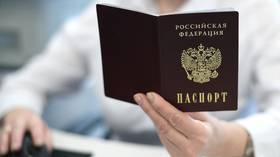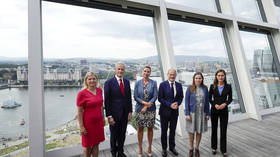EU weighs in on visa restrictions for Russians

The European Commission favors a “coordinated approach” regarding Russian visa bans, but so far, no EU member state has fully ceased issuing visas to Russian citizens, a spokesperson has said.
During a press briefing in Brussels on Thursday, Commission spokesperson Anitta Hipper said, as of now, “visa activities have not stopped completely and in particular the humanitarian cases are catered for.”
She said Russia’s offensive against Ukraine, which began in late February, had created “unprecedented challenges” not only for that Eastern European country, but also for all of the EU.
The official noted that the bloc had “acted immediately” by partially suspending the visa facilitation agreement with Russia on February 25. Hipper explained that the Commission is seeking to establish a “coordinated” visa policy toward Russia. She said the issue of further visa restrictions will be high on the agenda during the informal meeting of EU foreign ministers at the end of this month.
Ylva Johansson, EU commissioner for home affairs, will also visit Finland and Latvia in early September to discuss the issue with the authorities there, as well as to “understand the challenges on the ground,” according to the official.
Hipper’s comments came on the same day that Estonia implemented a ban on entry for most Russian citizens with Schengen visas issued in the Baltic nation.
Under the new rules, Russians carrying Estonian visas are now being turned away if they arrive at the Narva, Luhamaa and Koidula checkpoints on the border between the two countries.
Exceptions are being made for diplomats and their family members; those engaged in international cargo and passenger transportation; persons with the right of free movement under EU law; those who have to enter the Baltic nation for humanitarian reasons; and close relatives of Estonian citizens or permanent residents.
On Tuesday, Finland’s Foreign Ministry announced that it would dramatically decrease the number of entry visas issued to Russians, with just 100 tourist permits being made available per day.
The talk of sweeping visa restrictions for all or most Russian citizens has intensified in recent weeks, with the likes of Finland and the Baltic states calling for an EU-wide visa ban in response to Moscow’s actions in Ukraine.
Several other member states, including Germany, are less enthusiastic about the idea, however.
Chancellor Olaf Scholz argued earlier that the entire Russian population should not bear responsibility for what he described as “Putin’s war.”













